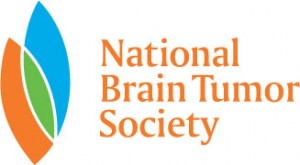 I recently had a conversation with Jill de Bartok, the program manager for patient services at the National Brain Tumor Society (NBTS), about their ever-growing programs. NBTS funds cutting-edge science and serves as a resource for researchers and medical professionals. It also provides services for patients, families, and caregivers, including a website to educate this community and help them make informed decisions during their treatment journey.
I recently had a conversation with Jill de Bartok, the program manager for patient services at the National Brain Tumor Society (NBTS), about their ever-growing programs. NBTS funds cutting-edge science and serves as a resource for researchers and medical professionals. It also provides services for patients, families, and caregivers, including a website to educate this community and help them make informed decisions during their treatment journey.
Brain tumors are abnormal growths of tissue within the brain that may or may not be malignant, or cancerous. Like blood-born cancers, some brain tumors are more prevalent in younger people or children than adults but every brain tumor is unique and, as such, requires individualized treatment plans. In talking with Jill de Bartok, she said that many unique difficulties in brain tumor care comes from the “cognitive changes and changes in parts of the brain from the tumor or treatment.”
These cognitive effects can cause seizures, personality alterations, or result in an inability to work or attend school. In addition, brain tumors can damage parts of the brain that produce hormones important in reproduction, causing infertility. Treatment for brain tumors can include surgery, chemotherapy, and radiation, all of which may also affect the fertility of brain tumor patients.
The NBTS focuses much of its research and patient services on quality of life issues. In early 2010, the NBTS launched my.braintumorcommunity.org to provide patients and caregivers an opportunity to share their stories and learn from each other through discussion forums, profiles, and friendship building. These discussions guide the NBTS staff to provide additional information on their “Headquarters blog. According to de Bartok, the NBTS “aims to improve the quality of life for everyone involved in all phases of the journey,” through the site. The NBTS also holds Family Caregiver Workshops in partnership with treatment centers and organizations, to help family members best care for the unique needs of brain tumor patients, and additional awareness events around the country. A Quality of Life initiative further obtains input from experts to ensure that NBTS programs have the most significant impact on the brain tumor community

